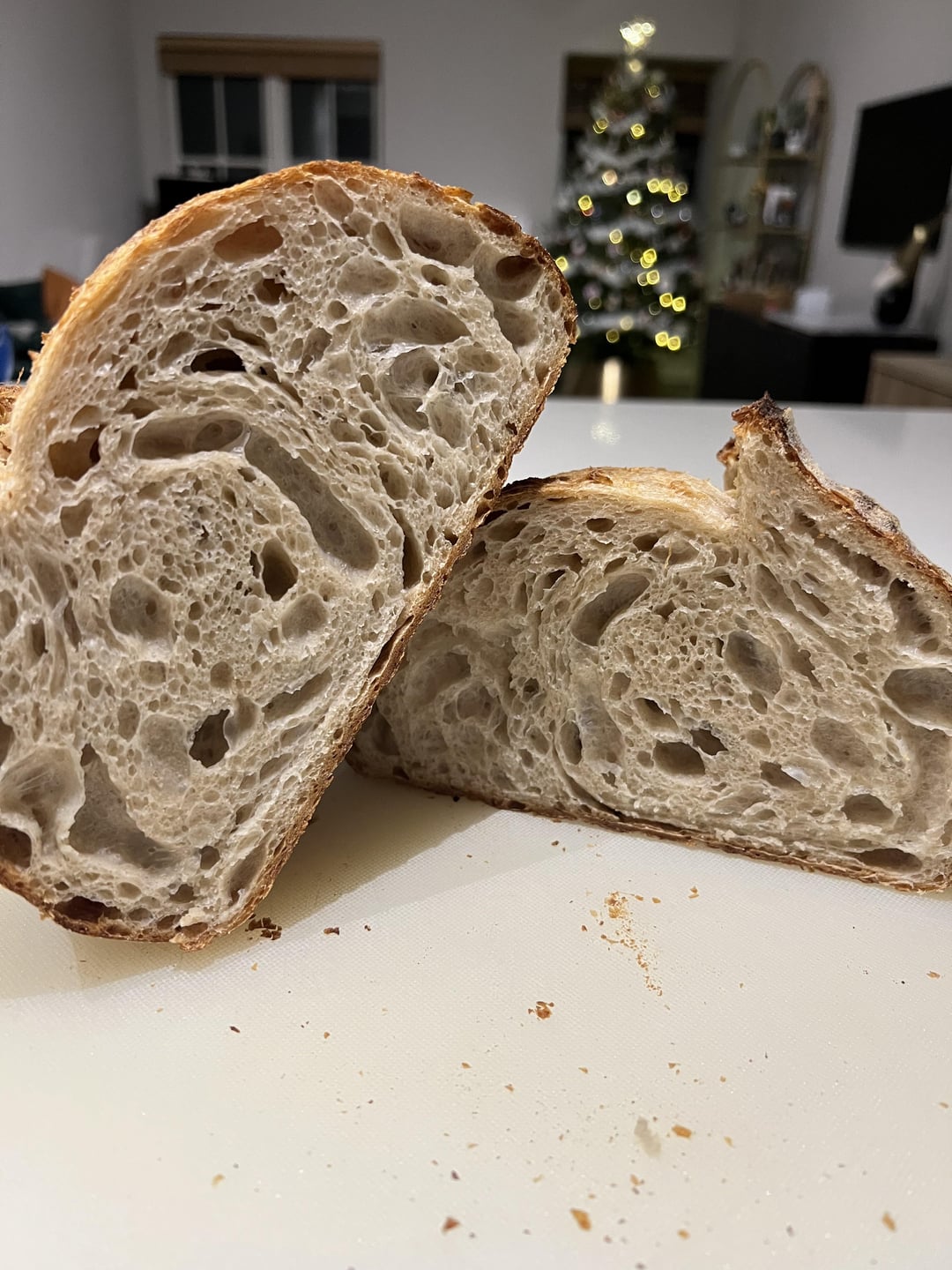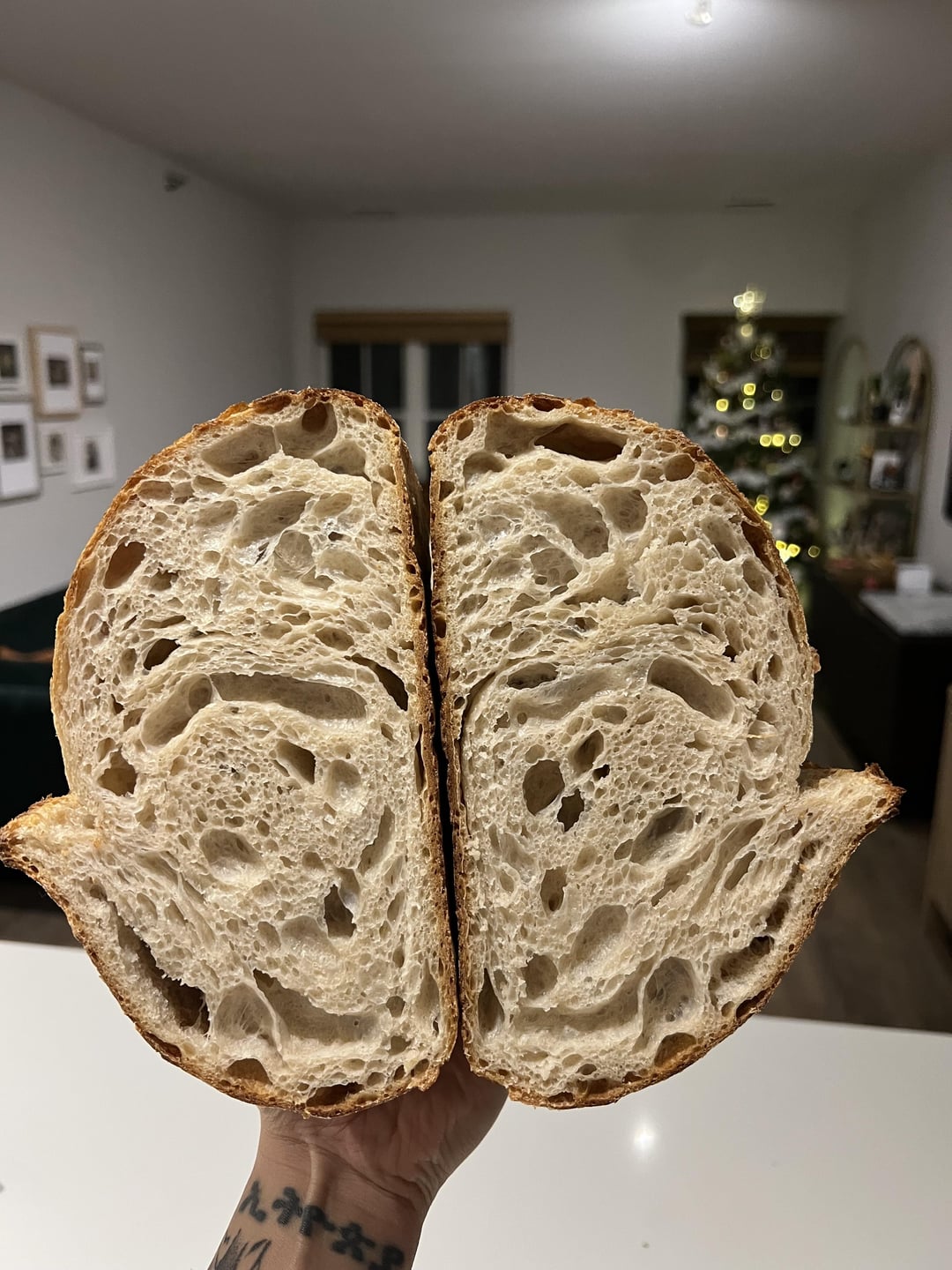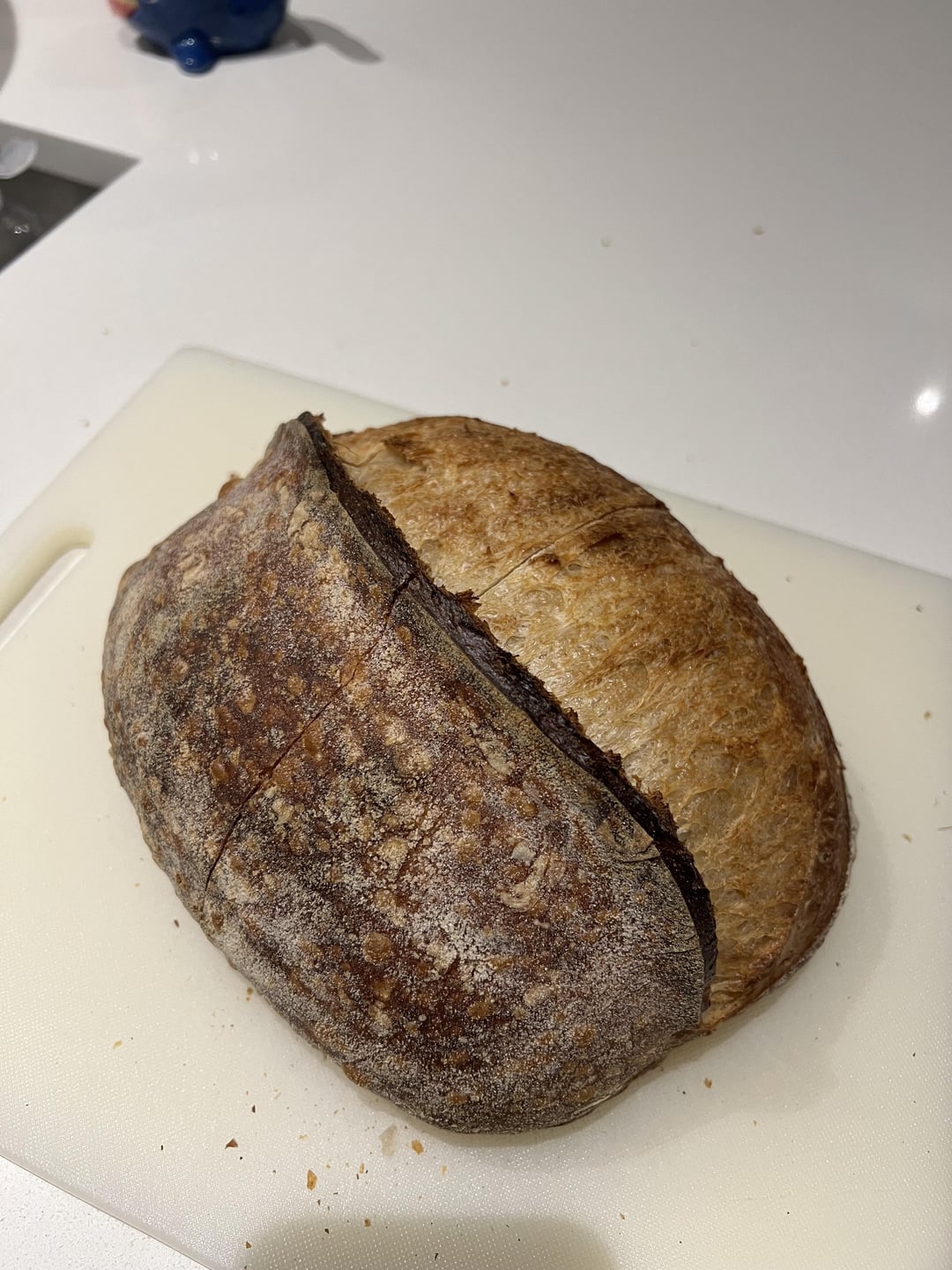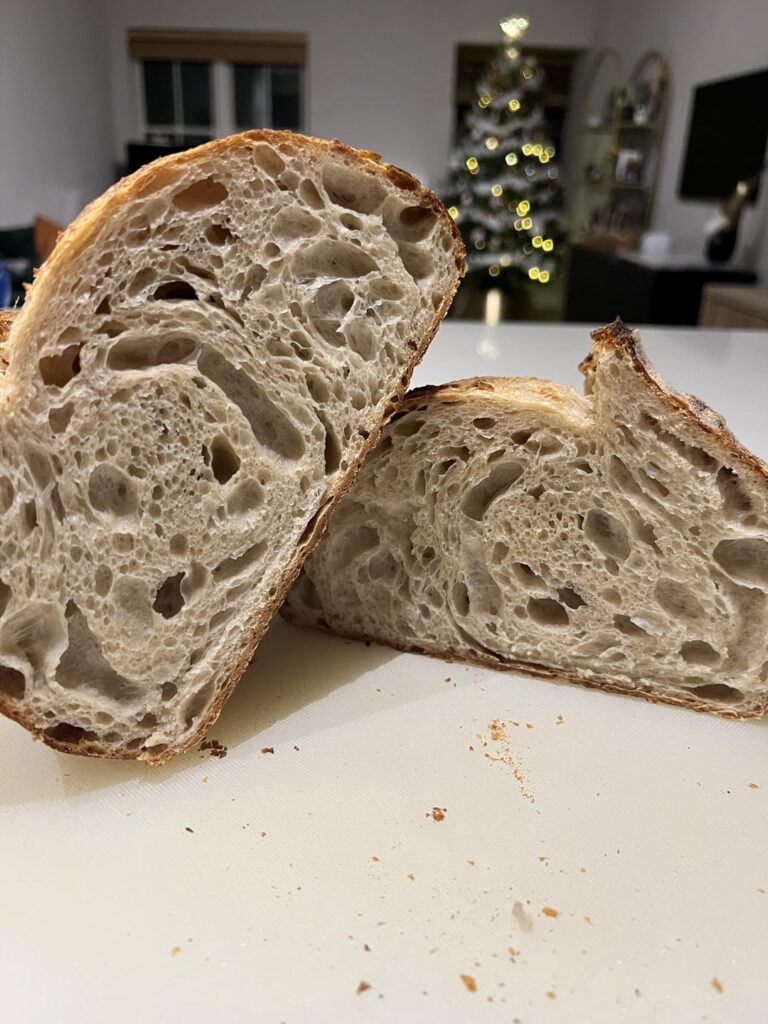


I normally bulk ferment at 78°F and then proof in the fridge, but I’ve been meaning to try a double cold retard method (two stage bulk + cold proof). I’d do it again as it turned out pretty well, but with some minor adjustments since it was very slightly overproofed (still got a nice textured crumb with no gumminess though).
Timeline:
First three hours: mixed dough (78°F DDT), added salt with slap and fold, did a lamination fold and two coil fold. **next time, I’ll shorten this to 2.5 hours and then, if that doesn’t work, bring the DDT down to 74 or 75°F
12 hours in refrigerator (36°F)
In proofer at 78°F to get the dough to room temp (took about two hours but this will change depending on how much dough you use)
Shaping as usual
18 hours cold proofing
Would love to hear any suggestions or feedback from anyone who has used this method!
by whisky_dick


3 Comments
Forgot to include percentages, sorry!
– 90% BF
– 10% WWF
– 20% levain (1:5:5)
– 78% water (not including the water in the levain)
– 2% salt
That’s a nice crumb. Doesn’t seem overproofed to me. Wow 2 stage bulk + cold ferment, never tried that before. How did it taste?
Cold bulk ferment and a cold proof?
Dough has a time bomb in it called the protease enzyme. It cuts up the gluten network. so 12 – 18 hours cold proof weaken the gluten and allows for large holes to form. The acidity of sourdough increases the protease activity.
Adding a cold bulk ferment to this runs the danger of the gluten being too weak and the loaf volume diminishing.
You might want to drop the cold bulk ferment and just do a cold proof to see how it goes.
Cold bulk fermentation has different advantages and disadvantages to cold proofing. They are two different tools in the bakers armoury.
There is a fashion at the moment for very long fermentation times. More is not better. Also, yeasted breads, with their lower acidity behave very different to sourdough doughs.
Finally for what it is worth it is the organic acids which react with the alcohol from the yeast fermentation which are the main source of good bread flavour. Cold proofing was developed in France to have loaves ready to bake in the morning and to try to leverage more flavour from yeast only doughs. Cold fermentation is just one tool amongst many.
I hope this is helpful and not teaching you to suck too many eggs.
Good baking to you.